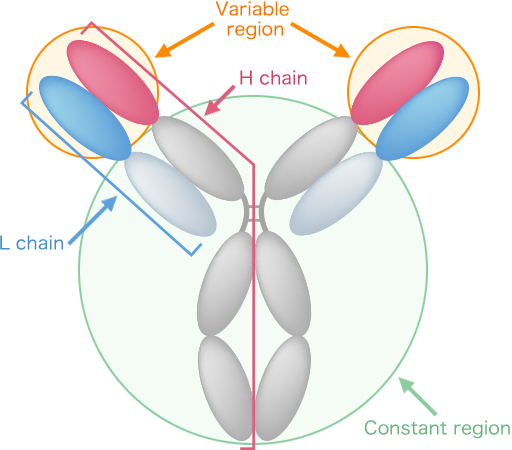What are antibodies?
Antibodies fight back invading bacteria and viruses
Antibodies are proteins that play a crucial role during the humoral immunity by attacking or eliminating pathogenic bacteria or viruses as foreign substances when they invade the body. They are produced and released from B cells, which are lymphocytes involved in the immune system, and also called immunoglobulin. When an antibody binds to its antigen, it eliminates foreign invaders and cancer cells through a variety of actions.

Each tip of a “Y” changes and binds to various antigens
Antibodies are generally expressed in the shape of a Y, as shown in the figure below, and each is made up of 2 H chains (heavy chains: heavy molecular weight) and 2 L chains (light chains: light molecular weight). The tip of the Y is a variable region that binds to antigens, and by changing the amino acid sequence, a variety of antigens can be handled. On the other hand, a constant region maintains an almost constant structure, and its amino acid sequence is also limited to several types. By binding to immune cells and complement proteins, the constant region plays an important role in actions such as ADCC activity and CDC activity.

